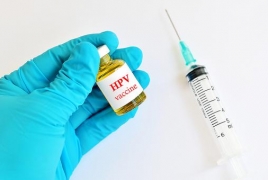
Cervical cancer could be effectively eliminated in most countries around the world by the end of the 21st century, The Guardians reports citing new research.
The HPV (human papilloma virus) vaccine, which protects against the virus that causes most cases, has dramatically reduced incidences of cervical cancer wherever uptake has been high. There are hopes that the jab given to young girls, together with occasional HPV screening, could end the scourge of a disease that kills more than 300,000 women globally every year.
Last year the director general of the World Health Organization (WHO) called for coordinated global efforts to eliminate the disease. The research, published in the journal Lancet Oncology, shows how this could be done by scaling up vaccine coverage and screening.
If nothing happens, 600,000 women will get cervical cancer in 2020, rising to 1.3 million a year by 2069 because the population is increasing and ageing. But the academics from Sydney, Australia, say 13.4m cases of the disease could be prevented in the next 50 years by implementing high vaccine and screening coverage in all countries.
By the end of the century, that would bring the global caseload down to less than four in 100,000 women – a level at which the cancer could be considered effectively eliminated.
Heidi Larson, director of the Vaccine Confidence Project at the London School of Hygiene and Tropical Medicine, said there were still issues around take-up of the HPV vaccine. There have been episodes of what appear to be psychosomatic events among groups of girls around the world, such as the 600 girls in various schools across Colombia who were taken to hospital fainting, twitching and unconscious in 2014.
The effects of such episodes spread around the world. Parents look for information about the vaccine which may be arriving in their area and find negative stories. “We thought all would go well in Armenia, but nobody came,” said Larson. “It is challenging. It takes a lot of work and a lot of engagement. Yet it is one of the best vaccines we have.”

